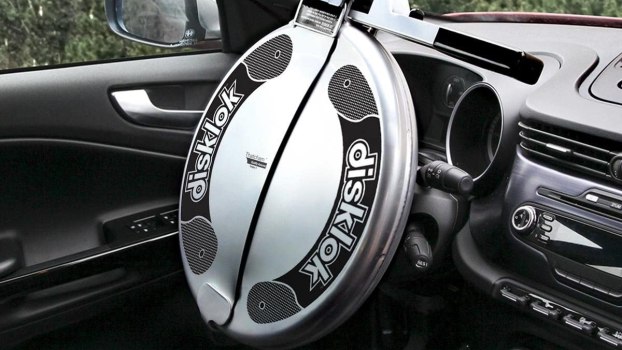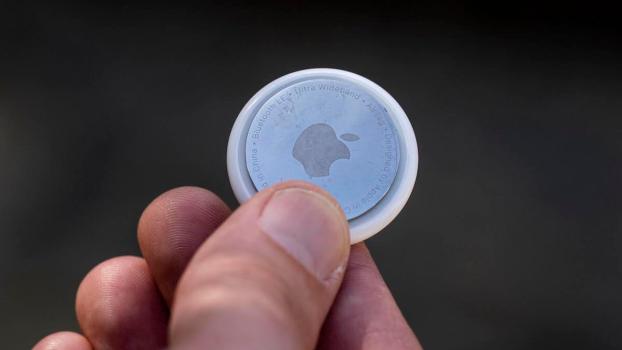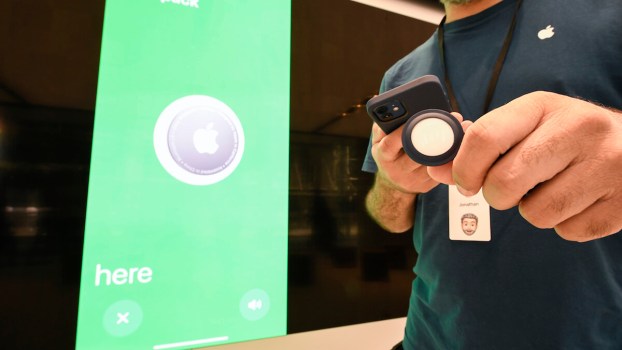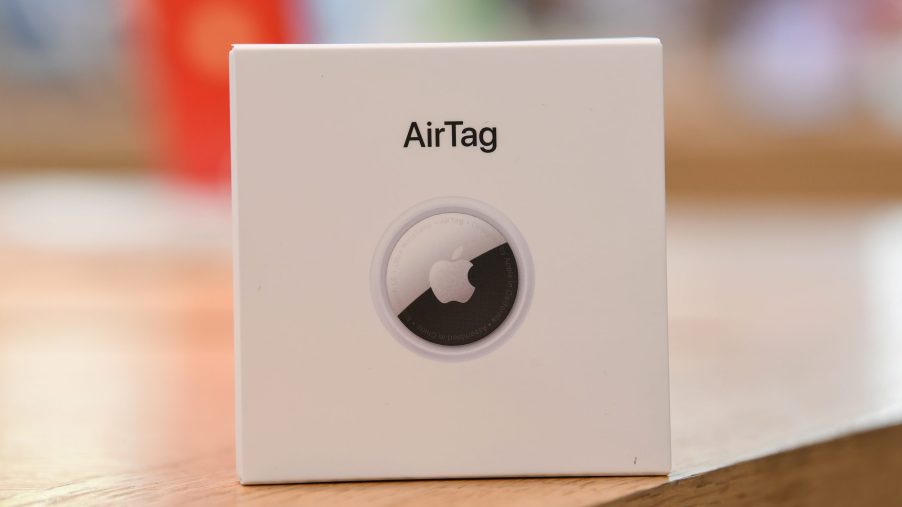
Can You Use Apple’s AirTag as a GPS Tracker for Your Car?
Maintaining your car is one thing, but protecting it from getting stolen is another. In fact, 721,885 vehicles were reported stolen in the U.S. last year, so if you want to keep your car from being part of that statistic, getting a GPS tracker could be a solution. However, most GPS trackers cost a lot of money to install and require a monthly subscription, so can Apple’s AirTag be a good substitute?
What is an Apple AirTag?
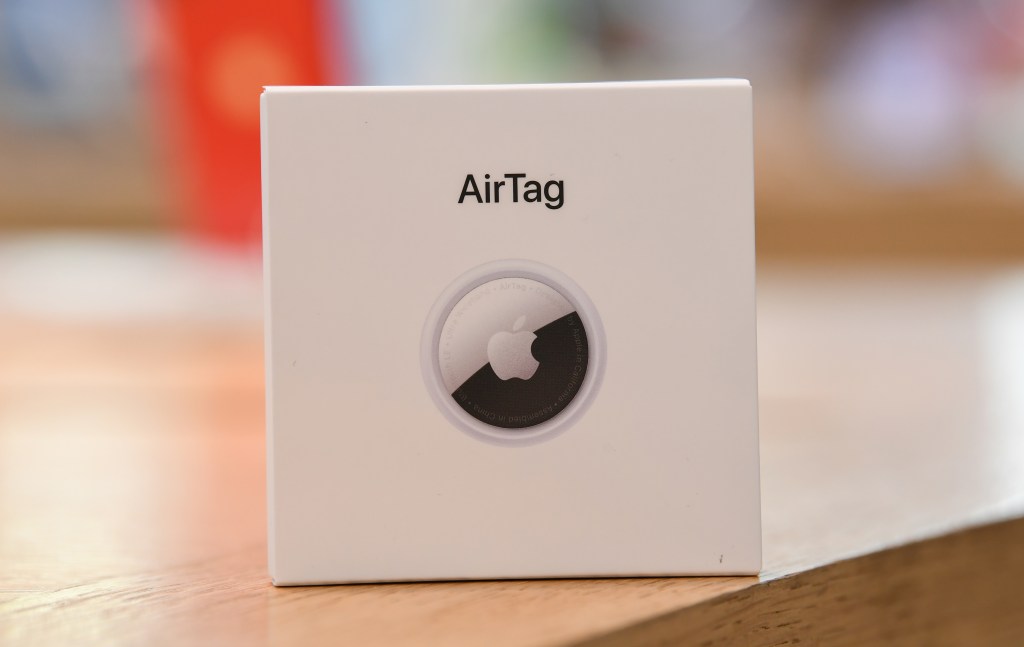
If you’re the type that is constantly walking around your home aimlessly looking for your car keys, wallet, or purse, then an Apple AirTag could be your best friend. Made for Apple iPhone users, the AirTag is a circular device that’s about the size of a silver dollar and can be attached to any item that you might lose. If and when you do lose that item, you can track the AirTag attached to it via the Bluetooth signal that it sends out.
Tracking the AirTag is as simple as logging into iCloud and searching for it in the “Find My” network. In a short amount of time, you’ll be able to see it on the map. Fortunately, AirTags have a long battery life, which should last at least 12 months, and what’s even better is that each tag only costs $29 from Apple and doesn’t require a monthly subscription to use.
Using the Apple AirTag as an anti-theft device for your car
While you can easily use an AirTag to track your car’s keys, can you actually use it to track the car itself? According to Car Expert, you can, but it comes with a certain caveat. While it’s easy to throw an AirTag into your car and call it a day since your phone will likely be able to track it when you’re inside your house, it can be trickier when the car is on the move.
In that case, if you put the AirTag setting into “lost mode,” it will rely on other people’s iPhones (with up-to-date software) to triangulate its whereabouts via Bluetooth. Yes, that means that if the thief who steals your car has an iPhone, it will actually help you locate your car. But if the thief doesn’t have an iPhone, then the AirTag can get a Bluetooth signal from an iPhone user nearby and send out the signal that way.
Testing the AirTag anti-theft theory

To test if an Apple AirTag would make a good GPS car tracker, Car Expert put one in a car alongside an actual GPS tracker. During the 30-minute drive, the GPS tracker could track the car easily and give consistent updates. However, the AirTag didn’t do as well. According to the test, the AirTag sent out updates every few minutes, which means that it could take a while for you to find your car should someone steal it.
Even when the car returned to the original location where the test started, it still took roughly three minutes to update its location, whereas the GPS tracker updated immediately.
Does the Apple AirTag make for a good GPS tracker?
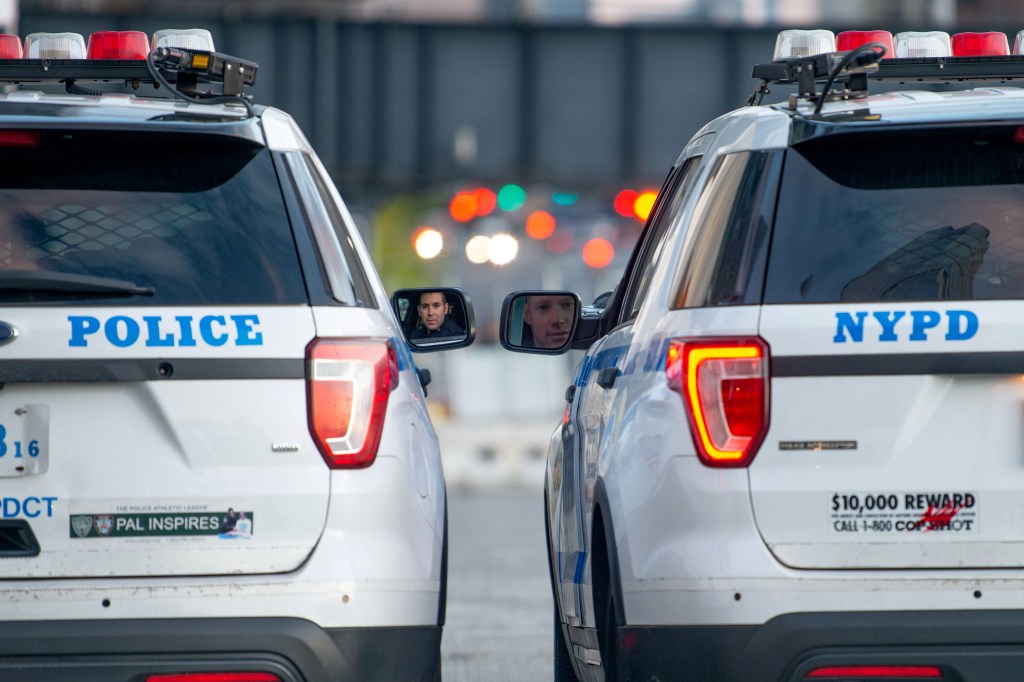
Yes and no. You can technically use an Apple AirTag as a GPS tracker in your car; however, don’t expect it to give you real-time and accurate updates like a genuine GPS tracker. While that may sound like a drawback to throwing an AirTag in your car for some peace of mind, consider that it only costs $29 compared to the hundreds of dollars you can spend on a real tracker.
If you don’t want your car to become another car theft statistic, an Apple AirTag can be a cheap and easy solution, even if it’s not super accurate. And if you find that it doesn’t work well as an anti-theft device for your car, you can always use it to find your keys instead.
